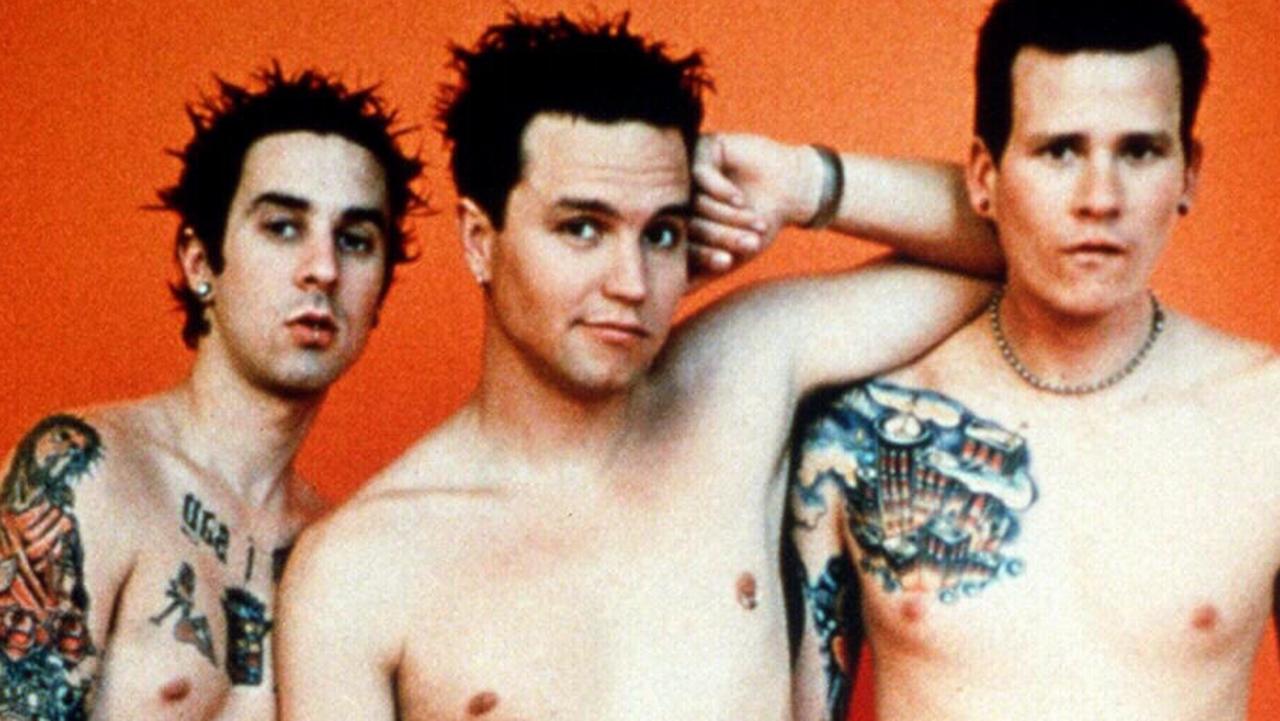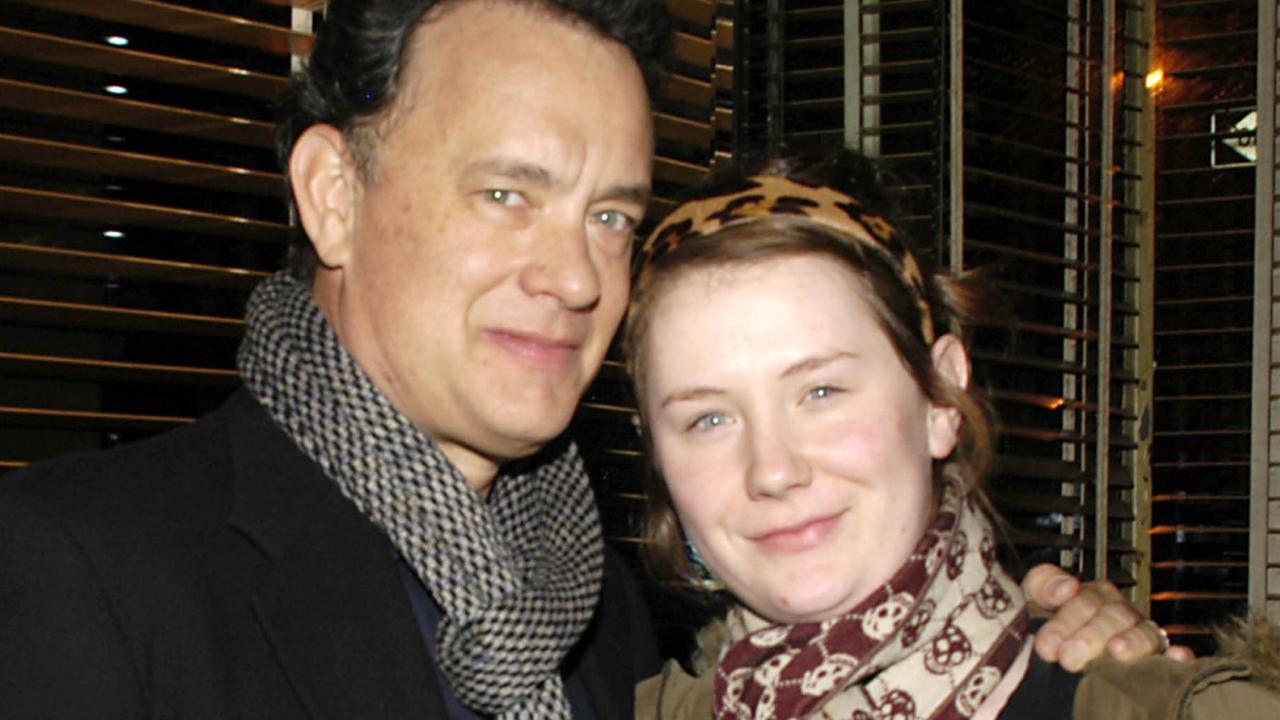Bert Newton was injected with LSD as part of a bizarre psychiatric treatment in the 1960s
TV legend Bert Newton had a complete breakdown and suffered a shocking reaction to LSD as part of a bizarre medical treatment at the height of his fame.
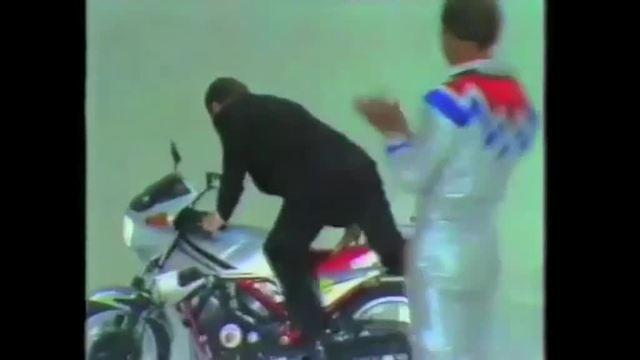
ENTERTAINMENT icon Bert Newton was undergoing treatment for a severe mental breakdown when he was injected with a potent dose of the hallucinogenic drug LSD, a new book reveals.
The terrifying incident is recounted in the new unauthorised biography Bert by Graeme Blundell, and goes into great detail about the star’s emotional collapse.
It was the beginning of 1964 when the television legend was admitted to a psychiatric ward in Melbourne after a severe breakdown, but he quickly returned to work.
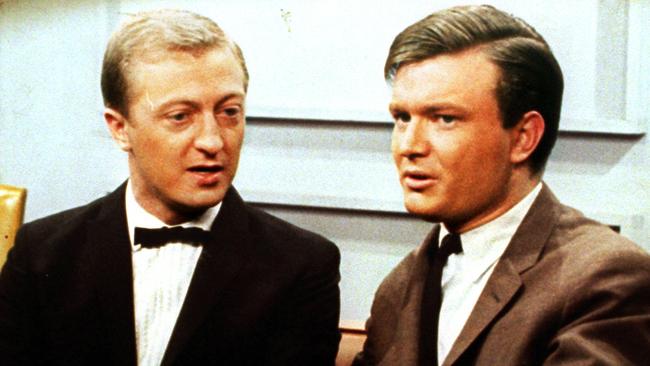
After several subsequent relapses, Newton resigned from Channel Nine and sought treatment full time. Some of the methods that his doctors used would be considered barbaric by today’s standards.
“His recovery was set back when a doctor in whose hands he had entrusted his return to health injected him with ... LSD,” Blundell writes in the book.
“Bert had no idea that a drug of that nature was going to be given to him. ‘It was like being thrown into the middle of the Indian Ocean with a lifejacket,’ he said later. ‘You know that for a moment you could float, but you kept wondering for how long you’d be safe.’”

According to Blundell, the potent dosage saw Newton “experience what was known as a ‘bad trip’” and the entertainer later described it as the most “ghastly” experience of his life.
“My vision was distorting ... things took on a grotesque form, the room was misshapen — I don’t know how long it lasted,” the author quotes Newton as saying.
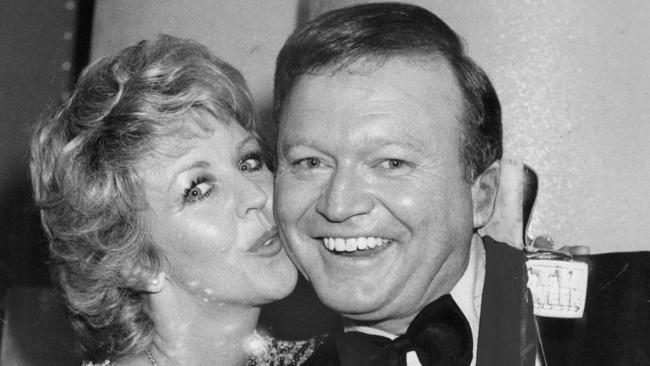
The doctor was forced to administer another drug to counteract the effects, which Newton described as “coming back from hell”, Blundell writes.
Through less radical treatments later, Newton was able to slowly recover and eventually returned to the small screen, but was forced to virtually start at the bottom.
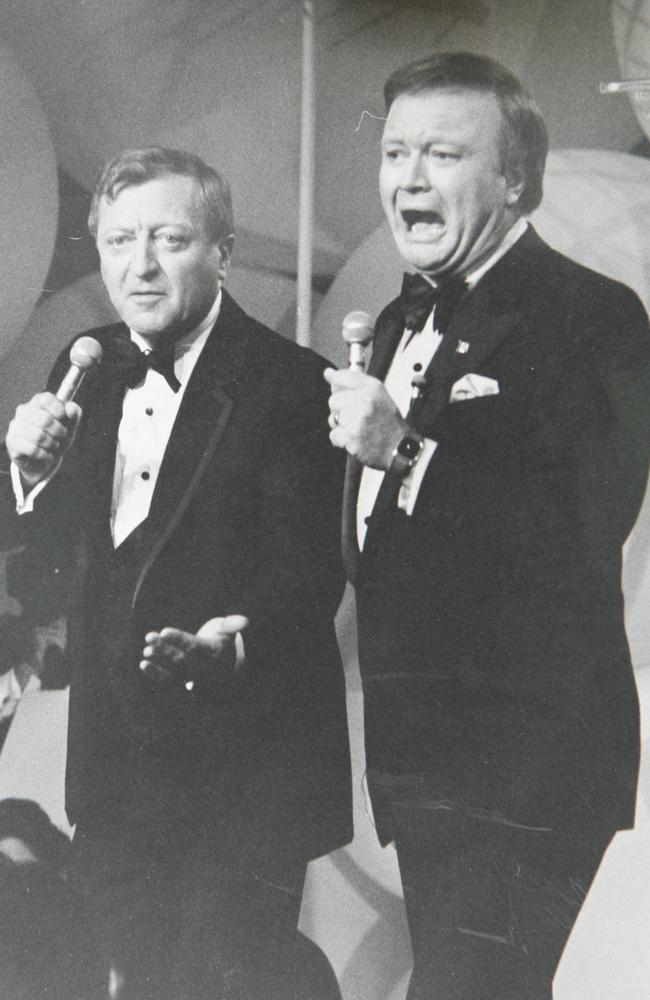
He had enjoyed a strong and iconic partnership with personality Graham Kennedy and the pair would both go on to forge a formidable path in Australia’s entertainment industry.
The biography also details the friction caused when media giant Sir Frank Packer bought Channel Nine in Melbourne in the early 1960s.

Before Newton’s breakdown and retreat from the limelight, he and Kennedy were the popular presenters of In Melbourne Tonight.
Despite its popularity with sponsors, Packer was not fond of the show — and specifically Kennedy, Blundell writes.
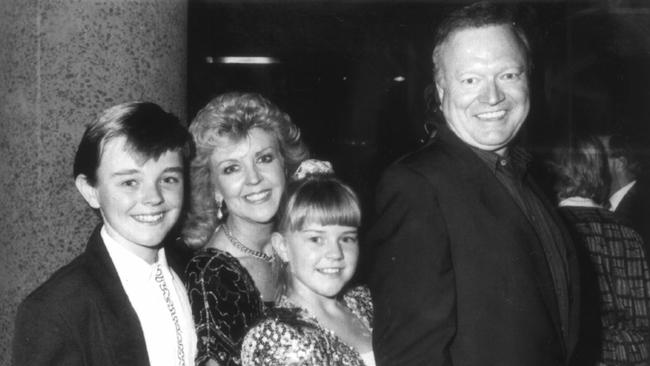
The mogul suspected that Kennedy was gay and “insisted he could pick one a mile off”, the book details. He initially appeared set to get rid of the popular presenter.
“Packer hated ‘poofs’ — as he called them — so much he refused to refer to Kennedy by name even as the star made millions for the Nine Network.”
While Kennedy battled on despite the intense homophobia directed at him, the pair eventually formed a sort of “working relationship” because the star was too bankable to ignore.

Kennedy died in 2005. His long-time mate Newton, a pioneer of TV, continues to maintain a busy work schedule, predominantly on the theatrical stage these days.
Bert is published by Hachette Australia and is on sale from Tuesday, October 28.


